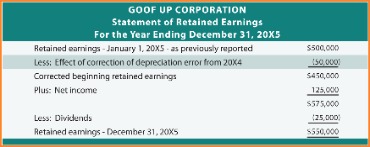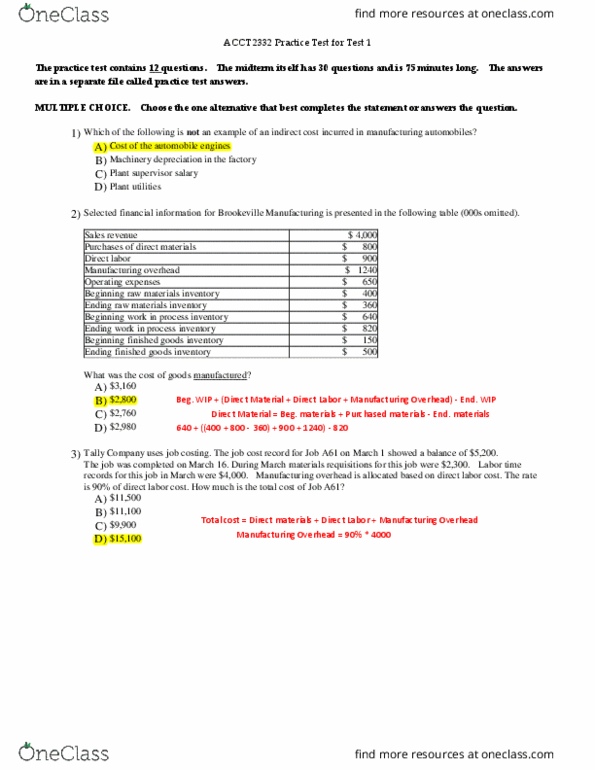
“Financial knowledge is not just for accountants; it’s a vital tool for every decision-maker.” “Cost accounting provides the tools to evaluate whether you’re making a profit.” Barron’s Accounting Handbook is a robust reference, encompassing an expansive coverage of accounting rules, standards, and depreciation definition practices.
Can I Use Excel Instead of QuickBooks?
- These may include net income statements, which show how much revenue the company takes in after expenses, or cash flow statements showing the financial transactions going both in and out of the company.
- Her passion lies in helping business owners conquer their fear of finances.
- Authored by Joanne M. Flood, it may be dry, but it’s an indispensable resource for accounting professionals dealing with detailed financial reporting rules.
- Accounting for the Numberphobic by Dawn Fotopulos is another of the best accounting books for small businesses.
They help you realize and manage the cash flows going in and out of your company, which is useful when applying for business loans or filing taxes. This guide offers a practical understanding of financial accounting basics, including crafting financial statements, tracking transactions, and understanding the importance of cash flow. With each lesson, you gain the confidence and knowledge needed to manage the finances of your small business efficiently.
For example, you may have estimated certain invoices that are later solidified with an actual number. In addition, “Financial Statements” is written in a straightforward, visual style that demystifies complex accounting topics with minimal usage of specialized terms. With “Profit First”, Michalowicz offers a fresh perspective on accounting by creating a simplified system that puts profit at the forefront of any business plan. Michalowicz flips traditional accounting on its head with “Profit First.” He introduces a straightforward system that ensures profitability, making businesses thrive sustainably. For those vested in the world of investments, understanding the intricate dance between accounting and value becomes paramount.
By simplifying complex concepts, the authors illuminate the path to understanding financial statements from the perspective of value investing. When an entrepreneur dreams exponential functions of launching their own business, those dreams don’t include scrutinizing balance sheets and income statements. A lot of small business owners have a great passion for their products, but nearly zero background in accounting or bookkeeping. Ronan Hughes presents a comprehensive accounting guide tailored for small business owners. This book acts as a compendium of accounting knowledge, providing a well-rounded understanding of various accounting aspects crucial for running a small business successfully.
You can connect with ClydeBank Business through their official LinkedIn or visit their official website for more resources and updates. Founded in 2003 in Toronto, FreshBooks started as just an invoicing tool. Over time, more features have been added, and as of 2023, FreshBooks has over 30 million users. The full-service payroll option is offered through Gusto and starts at an additional $40 monthly plus $6 per employee. Even without reading the entire book, you can use it as a reference guide to quickly find the answer to all kinds of local, state, or federal regulations.
Download the Countingup app now
It is designed to aid both new and seasoned entrepreneurs in navigating through the complexities of LLCs with simplified and clear instructions. In this transformative guide, Michalowicz presents a counterintuitive financial strategy that supports small business owners in their quest for profitability from their first day of business. Each of the accounting books on this list of 15 has been chosen for its ability to address specific challenges and knowledge gaps in the accounting discipline. As you try to break down financial accounting, you may encounter some complex new terms. But with the Oxford Dictionary of Accounting by Jonathan Law, you can identify and understand the essential accounting vocabulary. For businesses with highly particular accounting, reporting, and other needs, a custom system may be required.
Delve into budgeting techniques, financial report analysis, and strategies to manage and forecast your business finances for maximum profitability. For students, entrepreneurs, or finance professionals seeking a refresher, Bauerle’s guide offers a comprehensive yet concise overview of accounting fundamentals. Wayne Label presents a concise and clear introduction to accounting principles. With a structured approach, Label demystifies accounting for those without a financial background, making the subject both comprehensible and engaging. Her passion lies in helping business owners conquer their fear of finances.
What are small business accounting books?
These books were hand-picked for this, as they address the challenges beginners face in accounting. With that said, the process doesn’t have to be complicated; if you want to understand accounting, here’s where you should start. Mark P. Holtzman, PhD, CPA, is an accomplished author and professor of accounting, bringing years of teaching and writing experience to the table. John A. Tracy and Tage C. Tracy bring a wealth of knowledge on accounting and finance. ClydeBank Business is a brand known for producing high-quality educational guides for business professionals and enthusiasts.

FreshBooks will best serve service-based businesses that want the best invoicing tools and customization. And if you’re looking for a free solution to a business’s invoicing and accounting needs, Wave is a good option. Each plan offers more advanced features like inventory management, time tracking, additional users, cash flow, and financial planning.
Whether you are a student, a small business owner, or an aspiring accountant, Boyd’s straightforward and practical approach makes cost accounting accessible to everyone. Kenneth W. Boyd provides a straightforward guide to understanding the fundamental aspects of cost accounting. His book offers invaluable insights and practical advice, breaking down learn the differences between cfd and fx the complex facets of cost accounting into digestible and actionable information. The authors break down the elements of financial reports into understandable parts, offering insights into how these numbers can guide business decisions. Whether you’re an entrepreneur, manager, or investor, this book illuminates the fundamentals of financial reporting, making the numbers speak to you in clear, actionable terms.